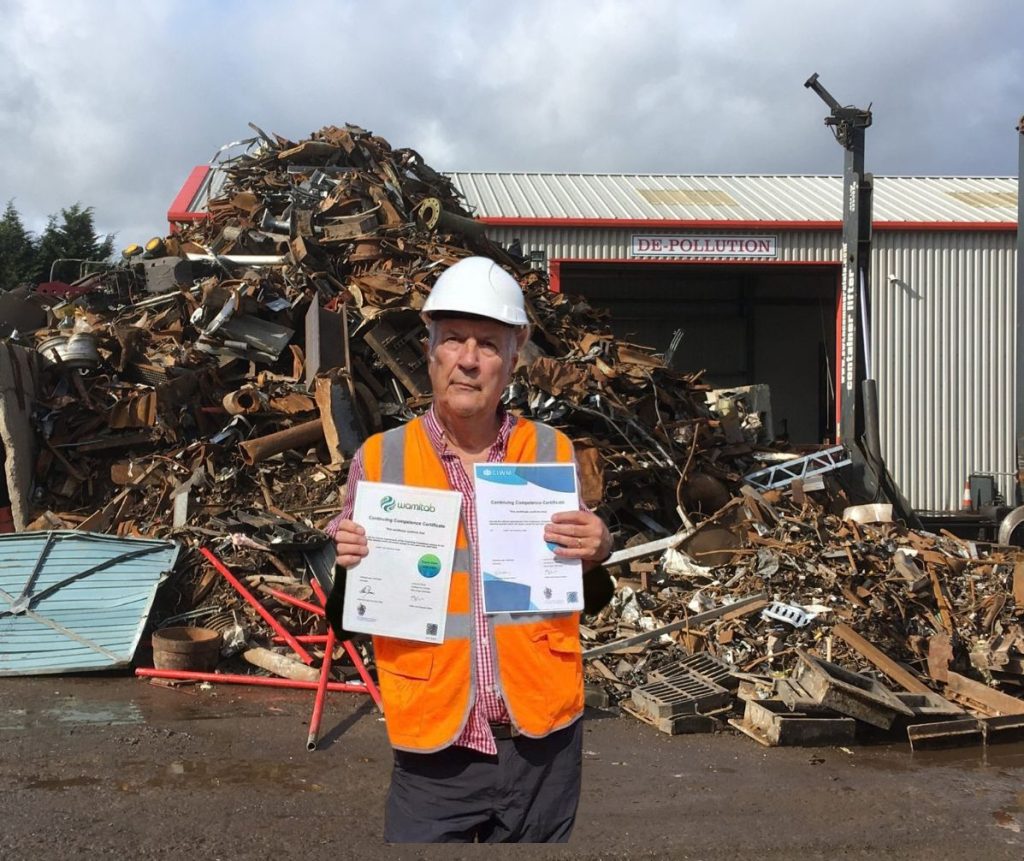Environmental Permitting Regulations 2007. From the 1st of April 2019 all sites must provide the details and dates of births of the nominated COTC holder on the Quarterly Waste Return to the Environment Agency.
COTC cover is an essential way for waste management and recycling facilities to meet their legal obligation to have a Technically Competent Manager (TCM) on-site for at least 20% of their operating hours.
A TCM must hold a Certificate of Technical Competence (COTC) and the failure to have a TCM on-site for the minimum period is an offence punishable by unlimited fines and, in the event of a serious environmental incident, possible jail time.
Your TCM should have completed relevant COTC training, for example the jointly developed technical competence scheme by the Chartered Institution of Wastes Management (CIWM) and the Waste Management Industry Training and Advisory Board (WAMITAB).
This gives them a good understanding of the issues surrounding waste management, including specific types of waste like clinical and hazardous waste, as well as aspects of recycling such as processing recyclable scrap waste.



